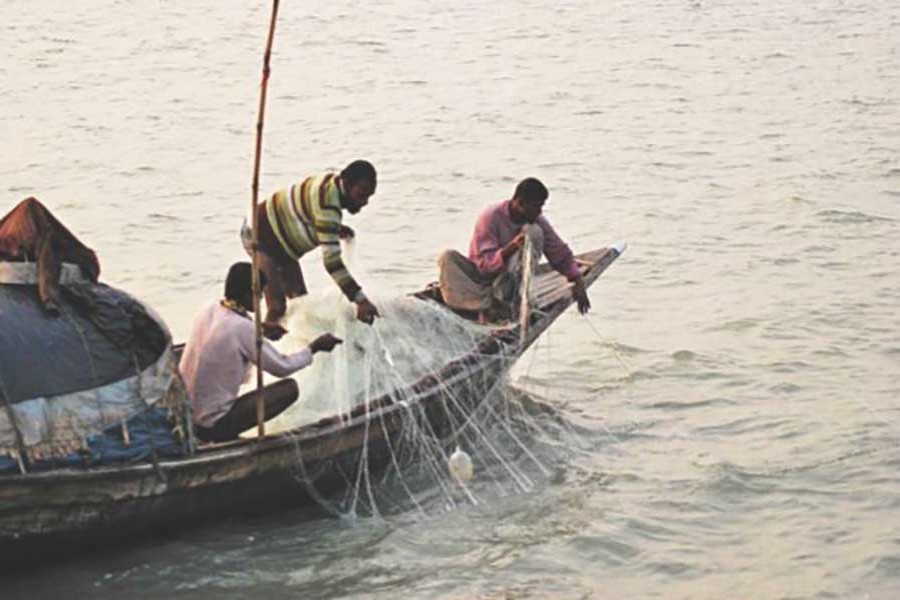Over five million people in the coastal areas of Bangladesh are directly involved with catching marine fish for a living. The scope for catching marine fish has widened in the country following the resolution of the maritime boundary disputes with India and Myanmar in 2013-14. But fishermen lack the required preparations for utilisation of this expanded opportunity. Around 87 per cent of fish resources from the Bay of Bengal are still caught by fishermen by employing traditional methods. In the absence of modern fishing boats and necessary other facilities, fishermen suffer a lot. Added to this are the threats posed by pirates and their godfathers.
According to newspaper reports, the coastal fishermen of south-western Barguna district go on fishing expeditions by over 3,000 boats to the Bay of Bengal via the confluence of Payra, Bishkhali and Baleshwar rivers. But these boats lack 12 life-saving tools including buoys, life-jackets, radios and compasses. In fact, as reported in the media, 90 per cent of fishing trawlers in the coastal areas do not carry buoys and life-jackets, and 99 per cent do not have compasses. The fishing trawlers in the region also remain mostly unregistered and bereft of fitness in the absence of proper monitoring. As a consequence of all these factors, lives are being lost on a regular basis. According to the trawler owners' association of Barguna, at least 3,500 fishermen have died and at least 10 thousand went missing in this region during the past 20 years due to sinking of trawlers.
The other perennial problem facing coastal fishermen is abduction for ransom by sea pirates. The fishing community has to spend a vast sum for releasing their boats, fishing equipment and even fishermen from these gangs of pirates. It has been observed that fish traders who fall prey to the pirates hesitate to seek help from law enforcers, as they feel the prospect of recovery becomes dimmer if the authorities are informed. However, counter-measures by law enforcers have been intensified in the recent past against the backdrop of an alarming rise in the incidence of piracy in the bay. Side by side, the government is offering pirates an opportunity to return to normal life if they surrender. As a result, many such gangs have surrendered to the law enforcers during the past few years.
The economic importance of the world's largest mangrove forest 'Sundarban' as well as the Bay of Bengal is enormous. The coastal belt is linked to the livelihoods of millions of Bangladeshis. Therefore, the area cannot and should not remain hostage to pirates and other hazards. With the resolution of the country's maritime disputes, the issue of security in sea has assumed even a greater importance because involved here is a marine territory that is almost equal to its own area. This has given rise to a huge potential in the shape of a blue economy. Consequently, the marine resources of the country and those who remain engaged in their extraction should be accorded due protection from both lapses like lack of safety tools and security threats like pirates. The government should order mandatory use of safety equipment in fishing boats. Besides, technical and financial assistance may be provided to those fishermen who lack the capacity to procure those on their own. On the other hand, rehabilitation of pirates who surrendered should be geared up, so that others feel motivated to do the same. Most importantly, the godfathers of these gangs need to be identified and brought to book urgently.


